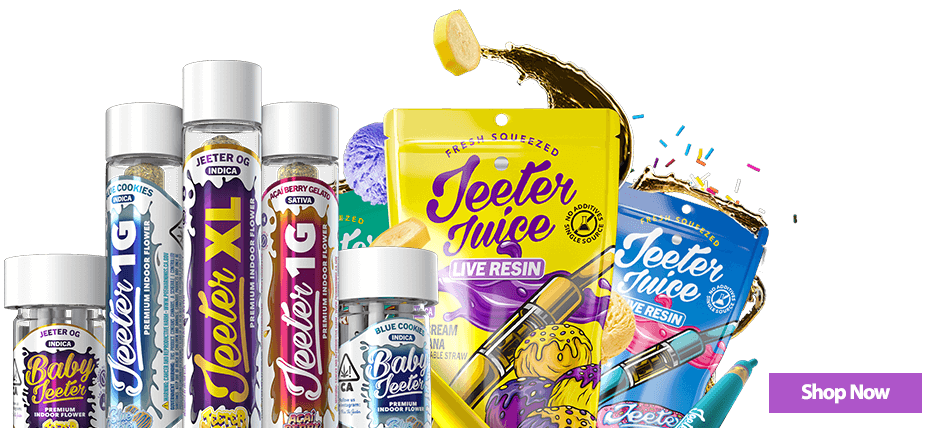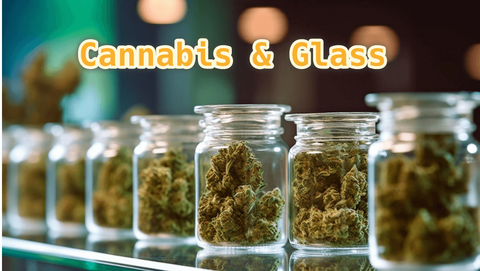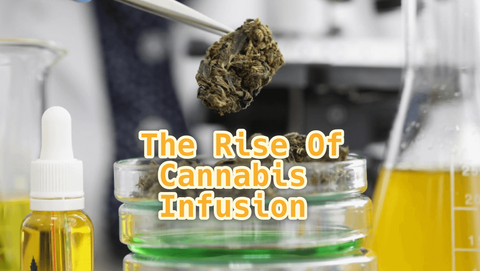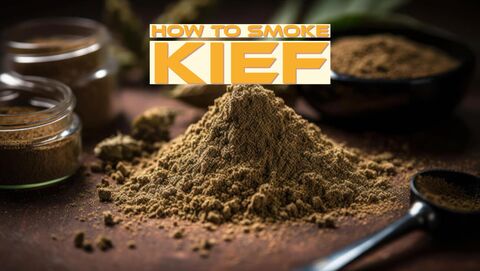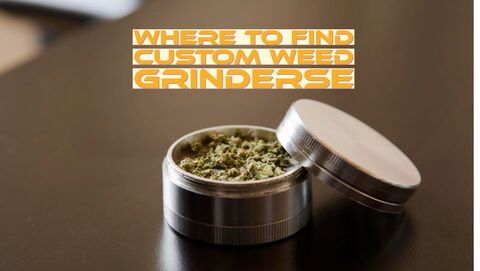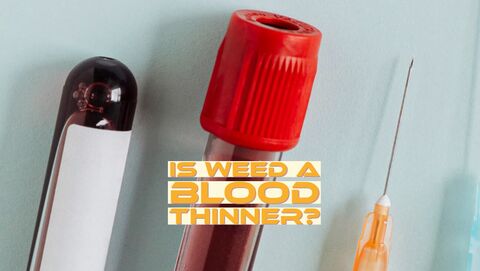Latest Blog Posts
Top rated
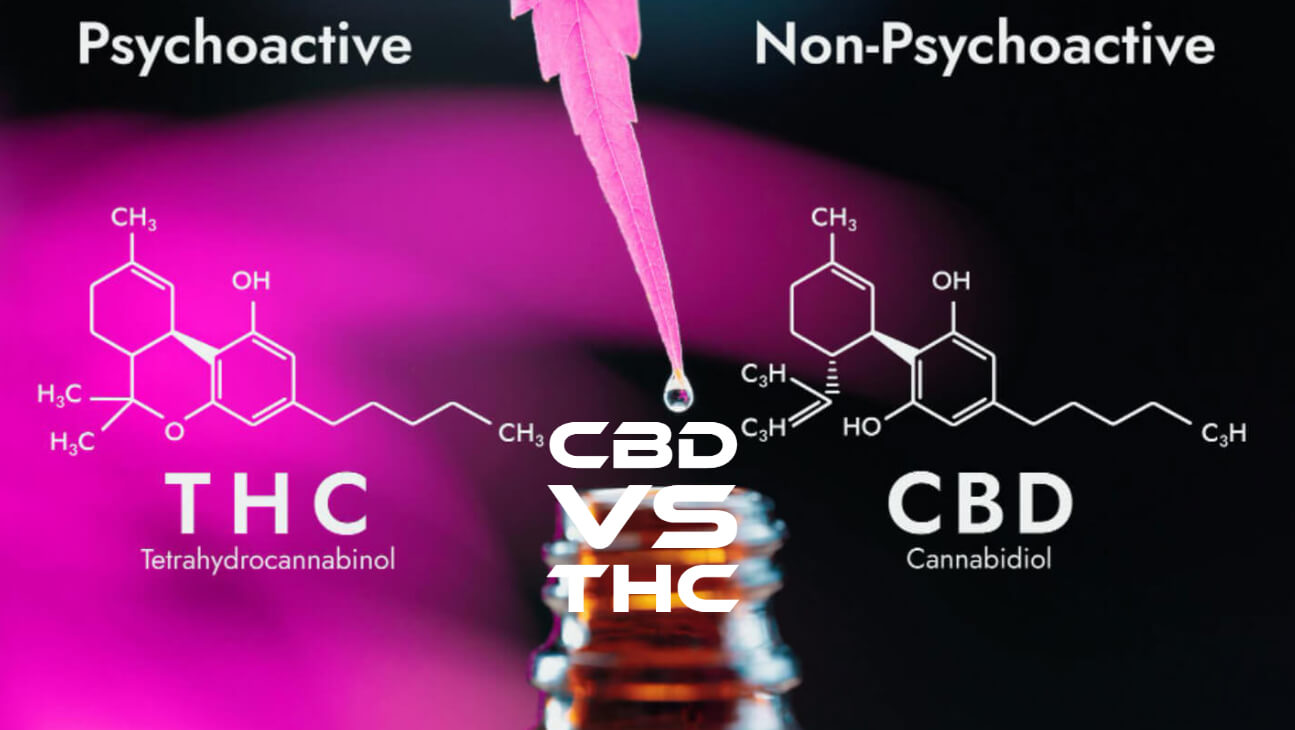
CBD vs THC
CBD and THC are the two most well-known cannabinoids found in cannabis. CBD is the active ingredient that is making it fashionable among all consumers, and it is to which all of the benefits of medicinal cannabis are ascribed. Generally speaking, THC is the psychoactive ingredient; and CBD is the active ingredient that makes it psychoactive.
What are the fundamental concepts?
Cannabidiol (CBD) and tetrahydrocannabinol (THC) are both examples of a group of chemicals known as cannabinoids. This is the two of the more than 150 different cannabinoids that have been identified in cannabis. What exactly are cannabinoids, though? In a nutshell, they are those chemical compounds that have the ability to interact with the cannabinoid receptors that are located throughout the human body and brain thanks to the endocannabinoid system.
They are, consequently, together with terpenes, those components of marijuana that awaken an effect on humans, either physically or mentally. This effect can be either positive or negative. When people consume cannabis, they are the ones responsible for making them laugh, helping us relax, and relieving the pain in the muscles. CBD and THC are two of the most well-known chemical compounds found in cannabis, and this is primarily due to the fact that researchers have focused the majority of their attention on them.
The Two Most Prevalent Cannabinoids
There are more than a hundred different cannabinoids that can be found in cannabis; however, the two that are most prevalent have quite different effects and are dealt with in very different ways by the law. THC is an abbreviation for tetrahydrocannabinol, whereas CBD is an abbreviation for cannabidiol (Cannabidiol).

Each one produces something distinctive and contributes in its own manner, in addition to the general sensation that marijuana delivers and the therapeutic purposes that it possesses. If you are familiar with both of these substances, you will be able to make a more informed decision of strains to cultivate, as well as know what to look for, depending on whether you are searching for something to use for recreational or medicinal purposes.
Types Of Cannabinoids, Both Of Which Operate On The Endocannabinoid System
Both tetrahydrocannabinol (THC) and cannabidiol (CBD) are types of cannabinoids, and both of these cannabinoids operate on the endocannabinoid system, which is found in all animals, including humans. The first thing that both of them have in common is this. This is an intercellular communication system that is generally active to generate balance. However, it can be increased by phytocannabinoids, which are cannabinoids of plant origin and are found in plants like marijuana. Thus, many people prefer cannabis plants.
This system usually is active to generate balance. The system works in a natural way to maintain a state of balance in the body. The results that are brought about by these are separate from those that are brought about by the body on its own naturally. The cannabinoid receptors CB-1 and CB-2 are the most essential components of the endocannabinoid system. Both the immune system and the central nervous system have some of these receptors in their separate areas.
THC is the component of cannabis that is responsible for its euphoric effects, and it attaches to a pair of receptors in the human brain known as CB1 and CB2, respectively. CB-1 is accountable for regulating sensations of pleasure, appetite, memory, and attention, whereas CB-2 helps to moderate the experience of pain and plays a role in maintaining balance in specific organs of the body, such as the kidney and liver. CB-1 is also involved in the production of the neurotransmitter anandamide, which is involved in the transmission of nerve impulses.
What Exactly Is CBD?
Cannabidiol, sometimes known as CBD, is one of at least 150 different cannabinoids that are naturally present in the cannabis plant. CBD, which is one of the primary phytocannabinoids found in cannabis, can make up as much as forty percent of the extracted plant material. For the vast majority of users, cannabidiol (CBD) has low or no intoxicating effects, and some research suggests that it may even mitigate the psychoactive effects of tetrahydrocannabinol (THC).

CBD exists in the plant in its unprocessed state as its precursor, which is known as cannabidiolic acid (CBDA). CBD is produced from CBDA by a process called decarboxylation or aging (heating). The most crucial step in comprehending CBD's medical applications is gaining an understanding of the receptors that it activates; yet, it is essential to keep in mind that science does not yet fully understand how, where, or why CBD works.
What Exactly Is THC?
Tetrahydrocannabinol, also known as delta-9-tetrahydrocannabinol, is the primary psychoactive component of cannabis. THC is the abbreviation for tetrahydrocannabinol. It has been used primarily for recreational purposes throughout history; nevertheless, researchers are actively looking into whether or not it has any pharmaceutical activity.
It has been shown to have some analgesic efficacy in addition to calming, antiemetic, and antioxidant qualities. Additionally, it causes changes in one's visual, auditory, and aromatic perceptions in addition to stimulating one's appetite.
According to certain studies, CBD may be able to mitigate some of the unfavorable effects of THC. As a result of this, a recent research has concentrated on examining the impact of mixed formulations of CBD and THC, which is referred to as the "herd effect."
THC is linked to a wide range of harmful consequences on one's health, regardless of how it is consumed. Paranoia, hallucinations, and dysphoria are three of the most typical manifestations of this condition. As a result, its use is prohibited in the majority of countries.
CBD And THC Share A Number Of Similarities
CBD and THC are both derived from the Cannabis sativa plant, which is more commonly referred to as marijuana. CBD can also be found in marijuana's "cousin," the hemp plant, which also contains the cannabinoid. Hemp, on the other hand, does not contain THC and is consequently the type of cannabis that is most frequently employed for therapeutic purposes.
The molecular structure of CBD and THC are the primary aspects that are comparable to one another. Both have a total of 2 oxygen atoms, 30 hydrogen atoms, and 21 carbon atoms in their makeup. The discrepancies in the effects that these two substances have are due to the fact that they have somewhat different arrangements of their atoms.
They share the same pathway throughout their biosynthesis as well. Both of these substances behave similarly to the endocannabinoids that are naturally produced by the body, which enables them to interact with cannabinoid receptors. Consequently, they cause changes in the way neurons are released in the brain.
Medical Benefits
Both cannabidiol (CBD) and tetrahydrocannabinol (THC) interact with the endocannabinoid system in the body. As something that is engaged in the control of many different functions, it is thought to play a crucial part in the process of staying healthy. But despite the fact that the two interact with one another, the effects that they each have on health are distinct.
CBD
At the moment, the cannabinoid CBD is the one that is utilized for medical purposes the most. It is available in a variety of formats, including capsules, tinctures, and oil, to name a few of the accessible options. The following is a list of its primary advantages:
- Alleviation of discomfort caused by arthritis
- In the therapy of multiple sclerosis, a coadjuvant is used
- Lessening of the symptoms caused by Crohn's disease
- Complement to the existing cancer treatment
- Decreases in levels of anxiety and other mood disorders
- Relief of sleep disturbances
THC
There is a lack of consistency in the evidence about the effects of THC. In point of fact, the findings of several studies have been questioned. In spite of this, the following are some of the medical effects of THC:
- Multiple sclerosis pain was significantly reduced.
- Lessening of the tremors associated with Parkinson's disease.
- Alleviation of nausea.
- A more insatiable hunger.
- Glaucoma treatment, as well as glaucoma prevention
CBD vs. THC
When you smoke a joint, the component known as THC is the one that causes you to feel sleepy and hungry at the same time, making you want to eat pizza and then go to sleep. In addition to inducing sleepiness, it stimulates one's hunger, which in turn heightens one's experience of pleasure when eating. Therefore, it is used in the treatment of conditions such as lack of appetite and sleeplessness.
Because THC is also responsible for affecting short-term memory, you can point the finger at it the next time you find yourself stoned and ask, "What was I talking about?" in the middle of a conversation. The marijuana strains that produce the highest levels of THC are, as a rule, the ones that are sought after for recreational use. It is also the component that the vast majority of nations throughout the world have placed the most restrictions or bans on.
On the other hand, CBD has been shown to have an effect on receptors such as GPR55 and 5-HT1A. Although it works in many different ways with THC to contribute to the impact of cannabis, it does not have any psychoactive properties of its own. Consequently, the ratio of CBD to THC is a significant factor in deciding the feeling that marijuana will produce. In point of fact, it counteracts the effects of THC in numerous different ways.
CBD is known to lessen the nervous feelings that are commonly brought on by THC, and it also possesses antipsychotic qualities that help to counteract the more potent impacts of the high. It is also associated with wakefulness and energy, so it serves as a complement to THC. However, if a sedative effect is desired, it is best if the proportion of CBD in cannabis is kept to a minimum. Hence, low CBD strains are the ones that will leave you wondering where you put the keys that are actually in your hands because they lessen the memory impairment induced by THC.
Achieving An Optimal Balance Is Essential
CBD is the most sought-after component in cultivars explicitly grown for medical purposes. It possesses anti-inflammatory characteristics that are significantly superior to those of THC, and because it does not have any psychotropic effects, it is safe for any patient to use. It is a standard treatment for musculoskeletal conditions like arthritis and rheumatism. Medical cannabis certainly has many benefits, yet, people should not forget about their state medical cannabis laws.
Since CBD also has an effect similar to an anticonvulsant and has been shown to diminish the severity of muscle spasms, it is frequently recommended for the treatment of refractory epilepsy. In addition, it has anxiolytic and antipsychotic properties, and there have been studies that support the use of this substance in the treatment of schizophrenia.
Both tetrahydrocannabinol and delta-9-tetrahydrocannabinol are cannabinoids, and both cannabinoids perform significant roles and work flawlessly together to regulate one another. However, other types of cannabis that are higher in tetrahydrocannabinol or THC are the way to go if you want to relax and enjoy yourself while watching a movie with just one box of chips, while CBD is the way to go if you suffer from an illness or have had significant trauma in the recent past.
Be mindful of the fact that if you do not consume an adequate amount of CBD, there is a possibility that you will no longer be able to watch the entire movie since you will nod off or forget what the plot was about. Finding the optimal balance is the key.
THC vs CBD: Do They Work Together?
There is a widespread misconception that cannabidiol (CBD) can prevent the psychoactive effects of tetrahydrocannabinol (THC) in the body. In point of fact, it would appear that THC and CBD operate in the human body in different ways, which renders the argument that "CBD blocks THC" overly simplistic.
CBD engages in competition with THC and works in conjunction with it rather than completely inhibiting its effects. THC works directly on the CB1 receptor, while CBD has an indirect impact on both the CB1 and CB2 receptors. This indicates that CBD does not prevent THC from exerting its influence on cannabinoid receptors; instead, CBD regulates the effect that THC has on these receptors.
Yet, there are some animal studies that show that CBD slows the conversion of THC to 11-OH-THC. This suggests that CBD may, in fact, have some inhibitory impact on THC despite what the studies with animals have shown. CBD may also be able to prevent the disruption of the dopaminergic system, in contrast to THC, which over-stimulates the ERK Pathway, which ultimately results in the disruption of the dopaminergic system. It is not yet known how this mechanism operates or at what levels it takes effect.
Differences In Effects That Can Be Seen Between Various Strains Of Cannabis
The interplay between THC and CBD also helps explain the differences in effects that can be seen between various strains of cannabis. Cannabis cultivars that are strong in THC but contain little or none of the antipsychotic compound CBD are often quite psychotropic, but their effects wear off quickly. Another example of the interaction between cannabinoids is THCV, which, at low concentrations, reduces the effects of THC while at greater doses, it promotes the euphoric effects of THC.

Even though high-CBD and low-THC strains may not have much of a psychoactive impact (or, more precisely, less of an intoxicating effect), they may still be able to induce a sense of relaxation or balance because CBD boosts the signaling of endocannabinoids. Some of the intoxicating effects of high THC/high CBD strains might be lessened, but the high might last for a more extended period of time. At high doses, 1:1 THC: CBD ratios can cause intoxication; however, many people report that at low to medium doses, 1:1 ratios do not produce an overwhelming amount of psychoactivity.
Reaching 'High'
CBD and THC are both cannabinoids, but they interact with slightly different cannabinoid receptors in the human brain. THC is more psychoactive than CBD.
There is evidence that THC can attach to the primary cannabinoid receptors due to the fact that its molecular structure is comparable to that of anandamide. This molecule is a member of the endogenous cannabinoid or endocannabinoid family of cannabinoids, which refers to a group of cannabinoids that are created naturally by the body. Due to the fact that these receptors are structurally similar, THC is able to engage with them and produce the high that is associated with using cannabis for recreational purposes.
CBD, in contrast to THC, does not result in the high that is commonly associated with cannabis use. Although researchers are unsure of the precise nature of CBD's interaction with the receptors, they hypothesize that the compound interacts in a manner distinct from that of THC. Instead, cannabidiol (CBD) may amplify the effects of other cannabinoids or bind to receptors that have not yet been identified by scientific research.
Possible Advantages Of CBD And THC
There is some evidence that THC, CBD, and other cannabinoids may be effective in the treatment of the following conditions, despite the fact that research into the possible health benefits of THC, CBD, and other cannabinoids is still in its early life:
- Epilepsy
- Anxiety
- Glaucoma
- Signs and symptoms of HIV/AIDS
- Pain
- Dependence on opiates
- Syndrome of the irritable bowel (IBS)
- A disease of the inflammatory bowel (IBD)
- Multiple sclerosis
- Sleep disorders
- Movement disorders
There are some differences between CBD and THC, despite the fact that the two can often be used to treat many of the same conditions and often have effects that are comparable to one another.
CBD is frequently used to treat the symptoms that are linked with the following conditions:
- Anxiety
- Depression
- Inflammation
- Migraines
- Post-Traumatic Stress Disorder (PTSD)
- Seizures
THC, which can be taken in the form of medicinal marijuana, is a substance that has the potential to reduce the symptoms of a wide variety of conditions. It has the potential to be useful for situations such as:
- Glaucoma
- Insomnia
- Nausea (alleviating nausea brought on by cancer treatment can help lessen nausea)
- Ache (caused by rheumatoid arthritis, fibromyalgia, and migraine headaches)
- Decreased desire to eat (can be worsened by cancer treatment-related appetite changes)
- Shivering
CBD And THC Are Effective Pain Relievers
Both CBD and THC have shown promise as potential analgesic agents. The euphoric characteristics of THC make it possible for it to deliver speedier pain relief. On the other hand, CBD may be helpful in reducing inflammation, which is an advantage for long-term effectiveness. There is evidence to show that the combination of CBD and THC may provide the most pain relief. One study found that patients who took CBD and THC together saw significantly more comfort from their pain than those who only took THC.
CBD And THC: A Look At Their Adverse Effects
According to the findings of several investigations, cannabidiol (CBD) and tetrahydrocannabinol (THC) are both relatively risk-free.
However, despite the fact that these medications appear to be risk-free, this does not imply that there is no possibility of experiencing any unfavorable effects. The following are some of the adverse effects that have been observed as a result of using this product:
- Alterations in both mood and appetite
- Drowsiness
- Anxiety and/or other modifications in mood
- Nausea and dizziness
In addition to its psychoactive effects, THC consumption is associated with a number of undesirable side effects, including increased heart rate, dry mouth, and memory loss.
Marijuana usage can result in a number of adverse side effects, both temporarily and permanently, including reduced short-term memory, poor judgment, and incoordination. According to a number of studies, marijuana can influence the maturation of the brain and lead to cognitive impairment.
The functioning of both the hippocampus and the orbitofrontal cortex can be altered by THC. These parts of the brain are essential for the creation of new memories as well as the capacity to switch one's focus from one topic to another. This not only limits a person's ability to learn new things and create new memories, but it also makes it more challenging to complete complicated tasks.
THC And CBD: How To Use Them
THC and CBD can both be ingested in a variety of different ways. Marijuana, which contains THC, can be smoked to experience its effects, but there are a variety of other cannabis-derived products available as well, such as CBD.
- oils
- tinctures
- sprays
- vape goods
- products that can be eaten, such as chocolate and gummy bears, among others.
- alcoholic beverages that contain cannabis oil
CBD, just like THC, can be taken in a wide variety of various forms. Even though there have been recent concerns raised about the potential adverse health effects of vaporization, CBD oil can be produced for use in vaporizers.
It is also possible to include it in topical preparations such as lotions and ointments that are applied to the skin. It is essential to keep in mind that these topical medications are not ingested; thus, their effects are limited to the area in which they are applied.
Oral use of CBD is another option, and it can be taken in the form of tinctures, oils, capsules, or sprays. Products that are edible and include CBD, including gummies, candies, and drinks, are becoming very popular.
When shopping for CBD products, it is essential to pay attention to the components contained inside each choice. CBD is the only component in isolated goods. Full-spectrum CBD products have not just CBD but also THC and any other cannabinoids that may be present in the cannabis plant. Broad-spectrum CBD products do not contain THC.
Which Product Is A Better Choice For Purchase?
Your desired end result should guide your decision over the product to purchase. CBD may provide benefits without the harmful side effects that are associated with THC. For instance, if you want to lower stress or sleep better, CBD may bring benefits. It is possible that THC is the superior option when it comes to treating symptoms or disorders where it has been demonstrated to be helpful, such as tremors or loss of appetite.
It has also been demonstrated that combining CBD and THC use can help mitigate some of the adverse effects that are caused by THC. For instance, one study suggests that cannabidiol (CBD) may mitigate some of the detrimental impacts that regular cannabis usage has on cognitive function.
For instance, those who regularly take cannabis, mainly if it contains a significant amount of THC, may be at an increased risk of developing psychiatric symptoms such as psychosis, paranoia, and anxiety. Nevertheless, research has indicated that CBD can help lessen the effects of this compound.
According to the findings of one study, CBD has the ability to mitigate some of the psychoactive effects that may be caused by THC.
The researchers who carried out this study point out that the results have significant repercussions for people who consume cannabis products. People who are more prone to experiencing adverse side effects, for instance, may still be able to gain possible health advantages if they choose products that have a low amount of THC and a high amount of CBD.
It is essential to keep in mind that CBD and THC act on distinct parts of the brain and that researchers do not yet have a complete understanding of the effects that either of these cannabinoids has on their own or when combined.
Before Taking CBD Or THC
Since THC and CBD can also influence some medical problems and interact with certain medications, users should exercise extreme caution whenever they engage in the consumption of goods containing either of these substances. These substances have the potential to alter the way in which the body metabolizes medications. They have also been shown to, in some people, exacerbate feelings of anxiousness. However, medical marijuana which has cannabis derived compounds, has proven to have certain positive effects.
It would be best if you verified the regulations of your state before purchasing a product that contains THC or CBD. This will allow you to determine whether or not such products are permitted in your area. According to federal law, CBD products derived from hemp can contain less than 0.3% THC; nevertheless, even these tiny amounts of THC are still considered unlawful in some states. Anyway, many individuals who are looking for complementary and integrative health often choose hemp derived CBD products.
The Bottom Line
The component known as THC is the one that causes you to feel sleepy and hungry at the same time when you smoke a joint. In addition to causing drowsiness, it also increases one's appetite, which, in turn, makes one feel more satisfied after a meal of food that they have eaten. As a result of this, it is utilized in the therapy of disorders, including a lack of appetite as well as an inability to sleep.
Since THC is also responsible for impacting short-term memory, you can point the finger at it the next time you find yourself stoned and questioning, "What was I talking about?" in the middle of a discussion. You can make this connection because THC is also responsible for affecting long-term memory.
For use in recreational settings, people typically look for marijuana strains that generate the highest levels of the psychoactive compound tetrahydrocannabinol (THC). It is also the component that the vast majority of nations across the world have placed the most restrictions or bans on, making it one of the most heavily regulated components in the world.
On the other hand, it has been demonstrated that CBD has an effect on receptors such as the GPR55 and the 5-HT1A receptors. Despite the fact that it interacts with THC in a wide variety of ways and contributes to the effect of cannabis, it does not have any psychoactive characteristics on its own. Because of this, the proportion of CBD to THC found in marijuana is an essential component in determining the effect that it will have on the user. In point of fact, it neutralizes the effects of THC in a variety of distinct ways across the board.
CBD is known to diminish the anxious sensations that are usually brought on by THC, and it also includes antipsychotic characteristics that assist to offset the more potent effects of the high. Additionally, CBD is known to lessen the feelings of paranoia that are commonly brought on by THC.
Because of its association with wakefulness and vitality, it works well as a supplement to THC. If, on the other hand, you are looking for cannabis to have a sedative effect, it is advisable to use as little CBD as possible in the strain you use. As a result of this, low CBD strains are the ones that will leave you wondering where you put the keys that are actually in your hands. This is due to the fact that CBD strains diminish the memory impairment caused by THC.
Disclaimer: This material is for informational purposes only and should not be relied on for legal, medical, financial, or any other professional advice.

